Cryptos offer diverse opportunities for traders and investors to capitalize on the dynamic and volatile nature of the cryptocurrency market. However, they also come with their own set of risks and complexities. It is essential for market participants to understand the underlying instruments and associated risks before engaging in crypto derivative trading. As the market continues to mature and gain acceptance, we can anticipate ongoing growth and innovation in crypto derivatives, presenting new ways to navigate the ever-evolving cryptocurrency landscape. In order to discuss derivatives, it is necessary to understand what they are first.
What are derivatives contracts?
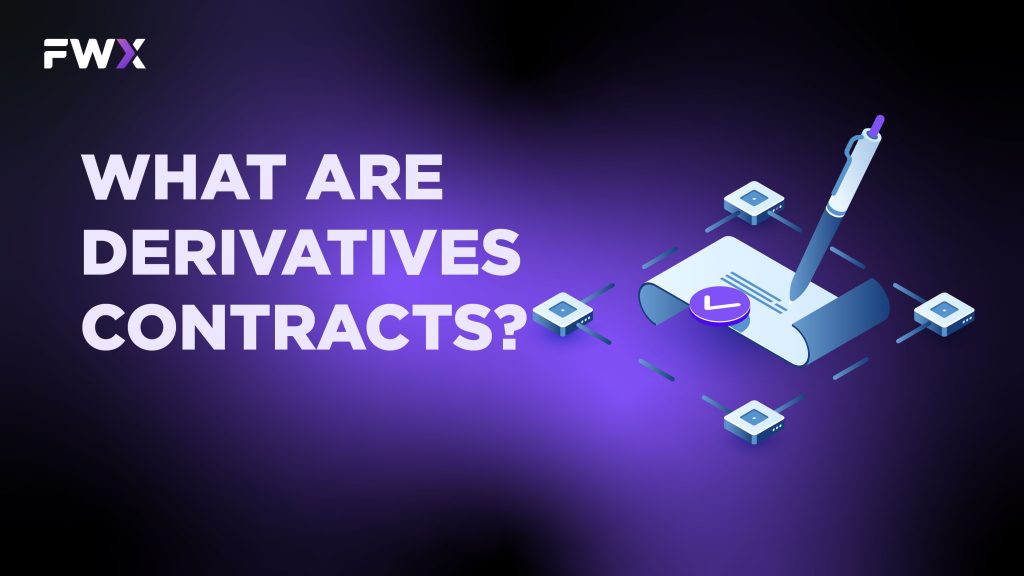
Derivatives are financial agreements based on the changes in the value of another underlying asset. They are used for trading financial risk in financial markets and can be connected to various financial instruments, indicators, or commodities. A derivative security is a financial contract that derives its value from the price of an underlying asset, such as a stock or commodity, or a financial index, such as the interest rate. There are different types of derivatives, including equity derivatives, interest rate derivatives, credit derivatives, commodity derivatives, and crypto derivatives, which are all based on the specific underlying asset. Different types of derivative contracts are traded based on their pay-off profiles. Among these derivative contracts, the most commonly traded ones include forward contracts, Futures, options, swaps, and exotic derivatives.
What are crypto derivatives?
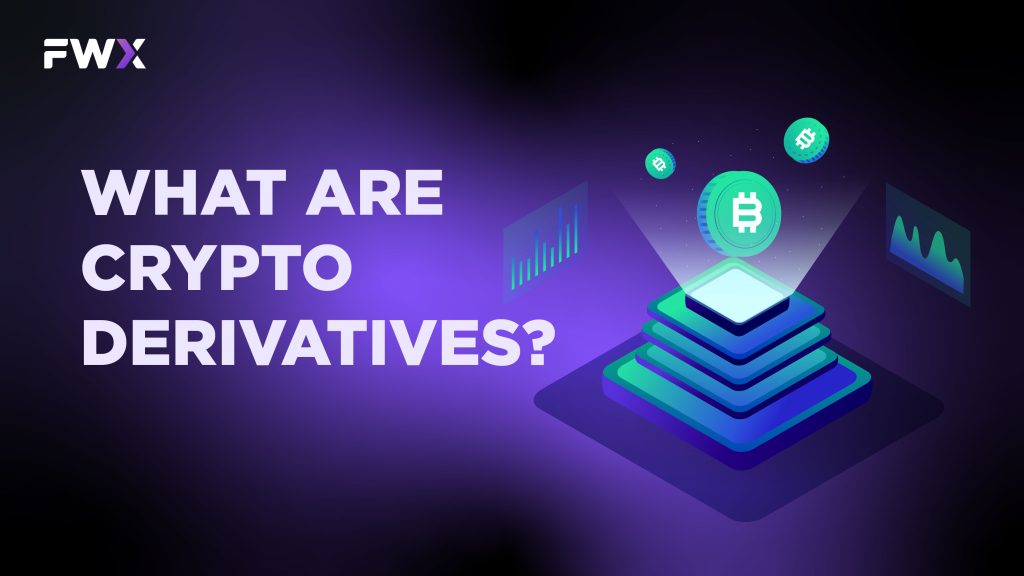
Crypto derivatives are derivative contracts where the underlying asset is a cryptocurrency. The cryptocurrency token can be the underlying asset in trading, and investors speculate on its future worth. Initially, the parties agree on a price for selling or purchasing the cryptocurrency on a specific date, regardless of market pricing. Investors may profit from price changes by buying and selling the underlying item at a discount. Like other derivative structures, these derivatives come in different types, such as forward contracts, futures, options, and Perpetual Swaps. According to CoinDesk, perpetual contracts are the most common type of crypto derivative among all derivatives.
Do crypto derivatives exist?
Yes, they do exist. Crypto and traditional finance derivatives share some similarities but also some critical differences. One of the primary differences is the underlying asset, with traditional derivatives typically being based on commodities, stocks, and currencies. In contrast, the derivatives are based on digital assets such as cryptocurrencies. Another significant difference is the regulatory frameworks for the two types of derivatives. While traditional derivatives are subject to regulation in most countries, the regulations surrounding the derivatives are still developing and vary across jurisdictions.
Liquidity is another crucial difference between the two. Traditional derivatives markets are more liquid than those for the derivatives, which means that buying and selling traditional derivatives can often be more efficient and cost-effective.
Finally, the risks associated with investing in the derivatives are generally considered higher than those of traditional derivatives due to the relative immaturity and volatility of the crypto market. This means that investors in the derivatives need to be particularly cautious and conduct thorough due diligence before investing.
Crypto derivative product: Perpetual future contract
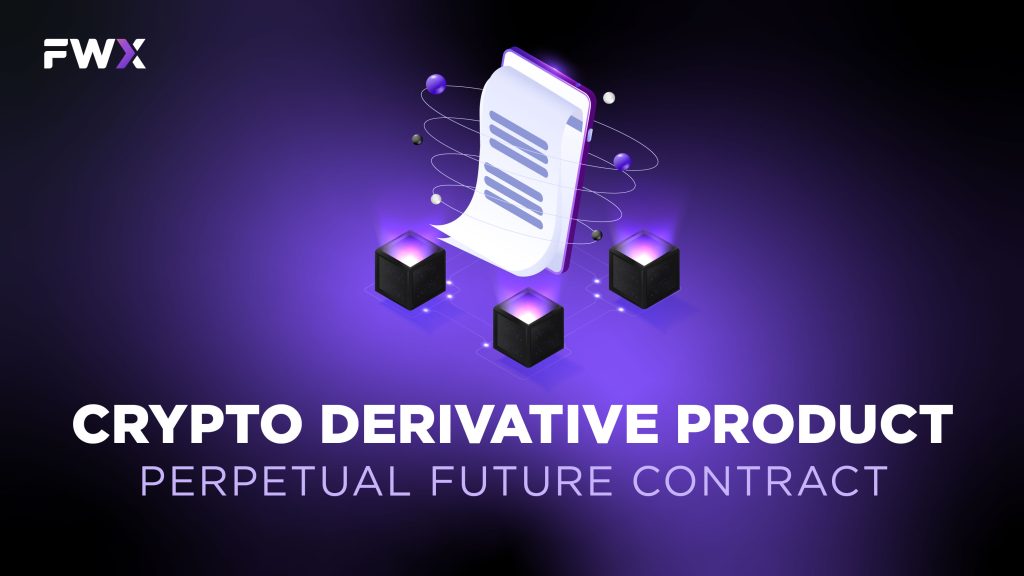
A commonly traded crypto derivative contract is the “Perpetual future contract.” This type of derivative contract is similar to BTC futures contracts. BTC futures contracts involve a buyer and a seller agreeing to exchange BTC at a specific price on a certain date. If the BTC price is higher than the agreed-upon price on the specified date, the buyer and seller lose. A perpetual crypto contract follows a similar structure, except that it has no expiry date. This means that a perpetual contract can be held indefinitely. One advantage of trading perpetual contracts over futures is that if the contract moves against the trader, they can continue holding the position by financing it rather than being forced to take a loss. In addition, this allows for a future change in the contract’s value.
Margin trading with cryptocurrency
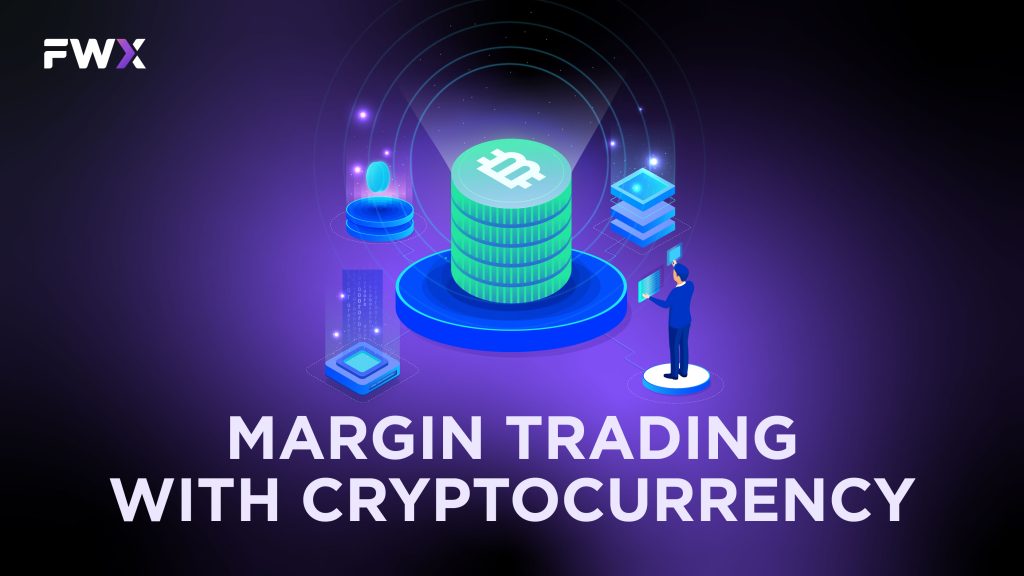
Margin trading with cryptocurrencies involves borrowing cryptocurrency to increase the size of your trades. In margin trading, you can take either a long position if you believe the asset’s price will rise or a short position if you believe the price will fall. When you trade on margin, you use your cash as collateral to borrow additional funds, which enables you to trade with a more extensive portfolio of assets. The amount of money you can borrow depends on the collateral you put down. Different leverage ratios, such as 2x, 5x, 10x, and so on, are used in cryptocurrency margin trading. Higher leverage ratios can result in more enormous profits, but they also entail more significant risk, as you are exposed to more significant potential losses.
Decentralized crypto derivatives exchange (DCDX)
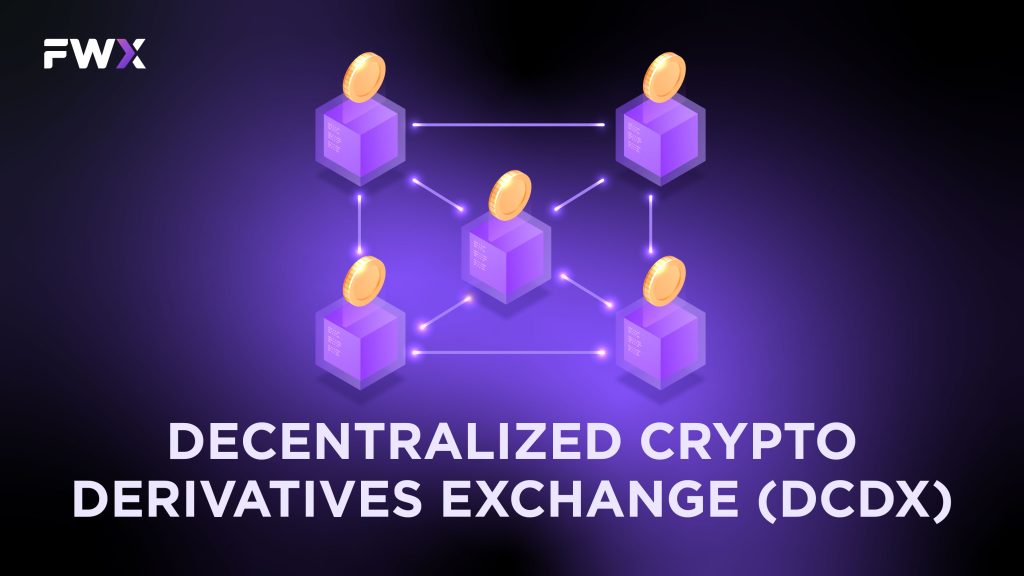
Decentralized crypto derivatives exchange (DCDX), a decentralized cryptocurrency derivatives exchange, is built on the backbone of decentralized finance (DeFi). DeFi is a blockchain-based financial platform that has gained popularity recently. It refers to a protocol stack built on public smart contract platforms such as the Ethereum blockchain, which Vitalik Buterin proposed in 2013. DeFi has transformed traditional financial services to be more transparent and open. It is a decentralized system that does not rely on intermediaries or central entities but instead uses open protocols and decentralized applications (DApps).
In DeFi, smart contracts are fundamental and used by all protocols and applications. Smart contracts are like small apps stored on a blockchain and executed simultaneously by many validators. In a public blockchain, the network is set up to allow any member to participate and verify that each action is executed correctly. Smart contracts may be less efficient than centralized computing, but they are highly secure. They consistently execute as programmed; anyone can independently verify the resulting state changes. When appropriately implemented, smart contracts offer unparalleled transparency and reduce the risk of manipulation and undue interference. DeFi has some key features that make it a suitable choice for DCDX, as follows:
- DeFi protocols are suitable for decentralized crypto derivative exchanges because the contract code is stored on the blockchain and can be publicly reviewed. This allows transparency in the quotes from market makers, including bid and asks sides and quote depth. This feature contributes to greater market efficiency and liquidity.
- DeFi protocols are appropriate for decentralized crypto derivative exchanges because their contract behavior is deterministic, and network members process transactions in parallel, ensuring legality, transparency, and trustworthiness of trade execution. This feature leads to tighter bid/ask spreads, fostering more liquidity.
- DeFi protocols are ideal for decentralized crypto derivative exchanges because the blockchain network’s consensus rules apply to state changes, resulting in efficient and smooth trade settlement. This process is particularly intensive operationally, but DeFi makes it more straightforward and transparent.
- DeFi protocols are useful for decentralized crypto derivative exchanges because the blockchain network’s consensus rules apply to state changes, resulting in efficient and smooth trade settlement. Post-trade activity, which can be very operationally intensive, becomes more straightforward and transparent using DeFi.
- DeFi protocols are advantageous for decentralized crypto derivative exchanges because the blockchain network’s consensus rules apply to state changes, resulting in efficient and smooth trade settlement. Post-trade activity, one of the most operationally intensive activities, becomes more straightforward and transparent using DeFi.
Can you trade derivatives on crypto?
Certainly. Trading derivatives on cryptocurrencies is indeed possible, with an increasing market demand for crypto-based derivatives, such as futures, options, and swaps. These instruments enable traders to speculate on the price movements of cryptocurrencies without owning the underlying asset.
Crypto trading functions are similarly to conventional derivatives. However, the underlying asset is a cryptocurrency rather than a stock, commodity, or currency. For instance, a crypto futures contract allows a trader to agree to purchase or sell a specified quantity of Bitcoin at a predetermined price on a specified future date. Similarly, a crypto options contract grants the owner the right to buy or sell a cryptocurrency at a fixed price on or before a particular date. It is crucial to recognize that trading the derivatives involves risk as the cryptocurrency market is highly volatile and erratic. Therefore, it is vital to conduct comprehensive research and comprehend the hazards involved before engaging in such trading.
There are examples of centralized finance and decentralized finance (CeFi/DeFi) platforms for trading crypto derivatives:
- Binance Futures: Binance Futures is a derivatives trading platform offered by Binance, one of the largest cryptocurrency exchanges in the world.
- dYdX: This platform provides margin trading and perpetual swaps for various cryptocurrencies with up to 10x leverage.
- MCDEX: This platform provides perpetual swaps and futures contracts for various cryptocurrencies with up to 10x leverage.
- Perpetual Protocol: This platform provides decentralized perpetual swaps for various cryptocurrencies with up to 20x leverage.
- OKEx: OKEx is a cryptocurrency exchange that offers a derivatives platform with options, futures, and perpetual swaps for various cryptocurrencies.
- Gate.io: Gate.io is a cryptocurrency exchange that offers a derivatives trading platform with perpetual swaps and futures contracts for Bitcoin, Ethereum, and other cryptocurrencies.
- Futureswap: This platform offers decentralized perpetual swaps for various cryptocurrencies with up to 20x leverage.
- FWX: This decentralized finance platform on the EVM-based chain offers two primary services: a decentralized derivative exchange (DDEX) and lending borrowing pools. Unlike other derivative exchanges, where short and long positions are matched against each other using an advanced protocol named Automated Position Hedger (APH), FWX DDEX acts as a counter-party to instantly match users’ long and short perpetual futures orders.
Conclusion
Crypto derivatives are contracts whose underlying asset is a cryptocurrency, allowing investors to speculate on its future value. These contracts come in various types, with perpetual swaps being the most common. The DCDX is a decentralized exchange for trading cryptocurrency derivatives built on the decentralized finance (DeFi) infrastructure, which uses smart contracts to execute transactions in a transparent and secure manner. Smart contracts are like small apps stored on a blockchain and executed by multiple validators simultaneously, making them highly secure and reducing the risk of manipulation and undue interference. DeFi has revolutionized traditional financial services by making them more transparent and open, utilizing open protocols and decentralized applications instead of intermediaries or central entities. Crypto derivatives offer various opportunities for traders and investors to capitalize on the dynamic and volatile nature of the cryptocurrency market. However, they also come with unique risks and complexities. It is crucial for market participants to understand the underlying instruments and their specific risks before engaging in crypto derivative trading. As the market matures and gains further acceptance, we can expect the continued growth and innovation of crypto derivatives, providing new ways to navigate the ever-evolving cryptocurrency landscape.


